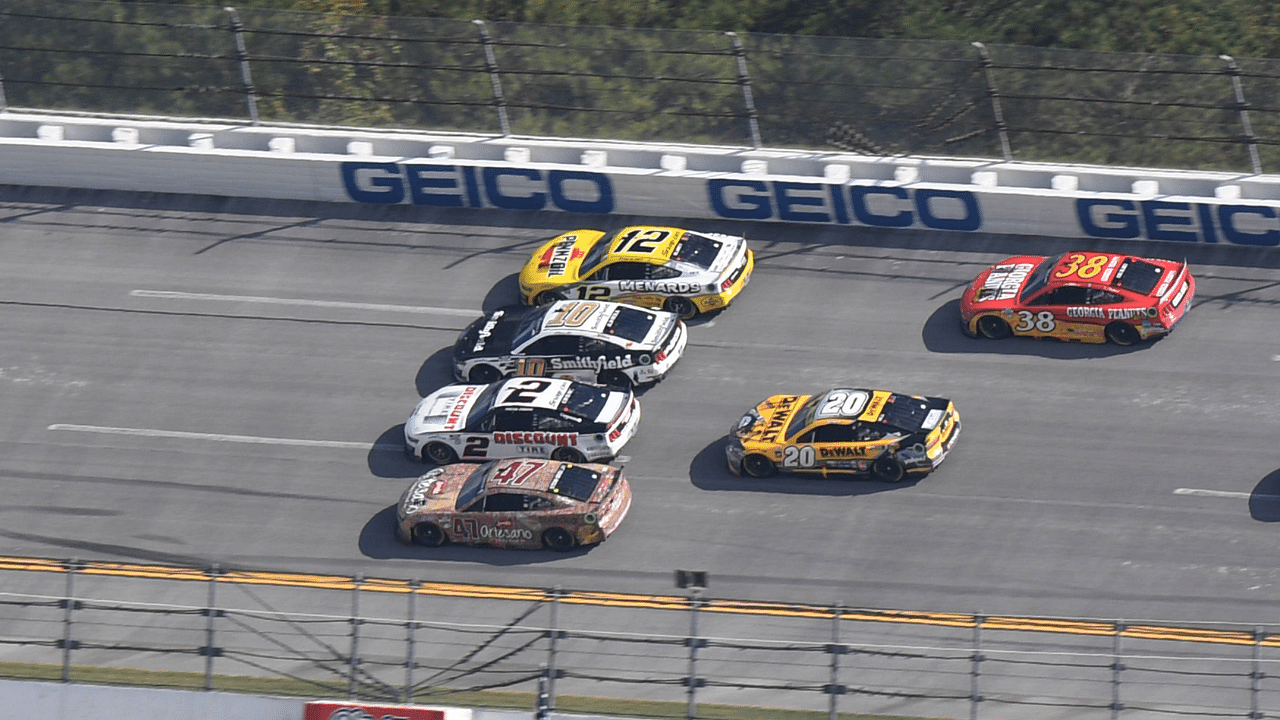Did NASCAR’s Next Gen Car Really Introduce Fuel-Mileage Superspeedway Racing? Cup Insider Thinks Otherwise

Every superspeedway race in 2024 has been marred with the controversy of fuel-saving. Drivers and teams have recently adopted the strategy of not running at full throttle through the opening stages to save fuel and spend less time on the pit road. Experts have ruled that the core reason behind this trend is the inability of the Next Gen car to make passes on tracks like Daytona and Talladega.
Drivers need some method to get past their competitors, and saving fuel is the most comfortable option they have right now. However, the crew chief of Ricky Stenhouse Jr., Mike Kelley, recently spoke on SiriusXM NASCAR Radio and expressed a contrasting opinion. He said, “I really want people to understand that it isn’t a Gen-7 car thing or this particular car thing.”
“It’s all the engineers and crew chiefs just getting smarter every single year.” Kelley also recounted a particular moment from 2021 when Brian Patty, former crew chief for the No. 47 car, managed to complete the second stage of the Daytona race in July without a single pit stop. The feat went unnoticed except by a few keen observers.
He emphasized, “It’s not really what the car did. That’s what we’re learning. And I’m so excited to see what two, three years from now, the more data we’re getting in these cars, the more live telemetry we get for a guy that’s been around for a long time.”
It ought to be noted that Kelley and Stenhouse Jr. emerged as the winners of the recent Cup Series race in Talladega. It is quite easy to fall in love with the system when you’ve just reached victory lane through it. While fuel-saving does require intricate strategies to be devised, it is not something many fans or drivers are fond of.
Ryan Blaney and Denny Hamlin criticize the prevalent fuel-saving tactics in NASCAR superspeedway racing
Before the Talladega race, Ryan Blaney voiced his unease with the fuel-mileage strategies that many teams employ at superspeedways. He believes that it allows them to stretch the time between pit stops by maintaining optimal speeds. He explained that even though no driver is fond of this tactic, everyone ends up using it to avoid being at a competitive disadvantage.
“It’s kind of just turned into a gas game… I think it’s just gotten this way mainly because it’s hard to make up spots anymore,” he remarked. Denny Hamlin echoed these sentiments on Actions Detrimental earlier this year. He lamented, “I’m so tired of running fuel mileage races where we’re all running half-throttle.”
“I wish we could do something about it, but it’s like, I don’t know, it helps you sometimes, it hurts you sometimes.” For now, it appears that fuel management will remain a crucial and favored strategy among drivers at superspeedways unless NASCAR decides to enact new rules that would make it illogical.





